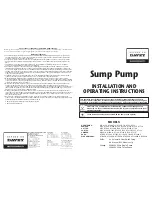
2
OPERATION MANUAL
NOTE:
In order to see the type and model of the machine, please see the
specification plate. Usually found on the back of the machine. See
example (Fig.1)
Fig.1
MOVABLE HEAD PRESS
MACHINE
HP-100T
MODEL NO.
SERIAL NO.
DATE OF MANF.
Note:
This manual is only for your reference. Owing to the continuous improvement of the
machine, changes may be made at any time without obligation or notice. Please ensure
the local voltage is the same as listed on the specification plate before operating this
electric machine.
Distributed by
www.machineryhouse.co.nz
MACHINE DETAILS





























